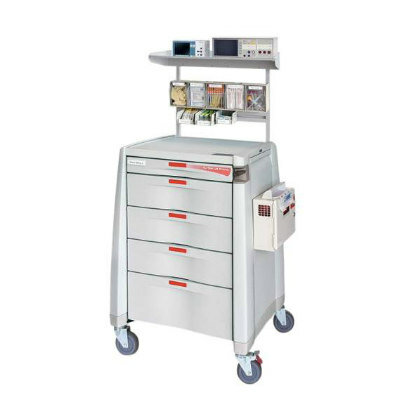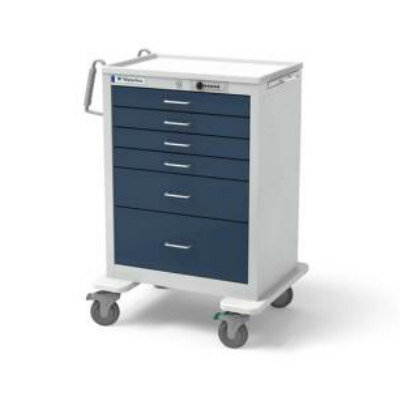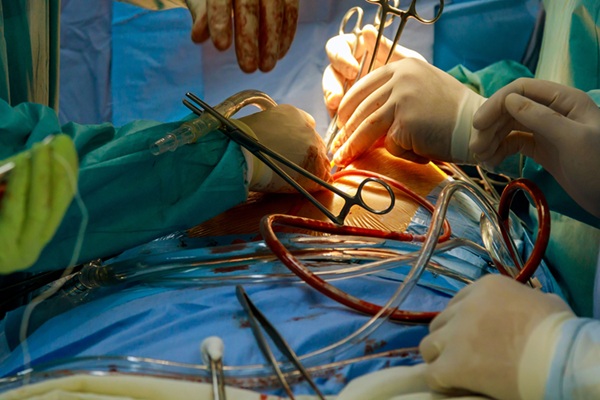Smartphone System Detects Irregular Heartbeats
|
By HospiMedica International staff writers Posted on 29 Sep 2016 |
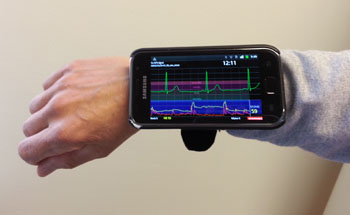
Image: The Beat2Phone device measures ECG signals and sends them to a cellphone (Photo courtesy of VTT).
A mobile app and thumb-sized device help to prevent cerebral infarctions by detecting early-onset atrial fibrillation (AF).
Developed by researchers at the Technical Research Centre of Finland (VTT; Espoo), the Beat2Phone device measures electrocardiogram (ECG) signals at a very high sampling rate, identify individual heartbeats and counting the interval between consecutive beats. By accurately measuring the user's heart rate and heart rate variability, the device can detect not only an irregular heartbeat, but also overburdening and prolonged stress, as evidenced by a high resting heart rate and low heart rate variability.
The mobile device has been tested so far by about 30 heart patients at Turku University Hospital (Finland), some of whom have also worn the device at night. The test population includes people who have reported heart symptoms that were not detected during Holter monitoring, as well as by athletes and professional sportspersons with heart conditions who need to monitor their heart activity regularly, as changes in ECG may be an indicator of myocarditis or other serious conditions.
In the tests, the device helped to detect AF, arrhythmia, and a cardiac conduction disorder, sending a notification directly to the user’s cell phone. Once the Beat2Phone ECGs were reviewed by a physician, the patients were admitted for further tests. According to the developers, other potential users of the device include monitoring people suffering from sleep apnea, as well those who suffer from musculoskeletal disorders such as neck, shoulder, and lower back pain, tennis elbow, and repetitive strain injury, which are common among office workers.
“With the mobile device developed by VTT, users can register their ECG signal whenever arrhythmia or other heart symptoms occur,” said Timo Varpula, PhD, principal scientist at VTT. “The device is also suitable for pre- and post-surgery monitoring of heart patients at home. There is no need for patients to visit a hospital, because the data is sent automatically from a mobile phone to medical staff via a cloud service.”
Related Links:
Technical Research Centre of Finland
Turku University Hospital
Developed by researchers at the Technical Research Centre of Finland (VTT; Espoo), the Beat2Phone device measures electrocardiogram (ECG) signals at a very high sampling rate, identify individual heartbeats and counting the interval between consecutive beats. By accurately measuring the user's heart rate and heart rate variability, the device can detect not only an irregular heartbeat, but also overburdening and prolonged stress, as evidenced by a high resting heart rate and low heart rate variability.
The mobile device has been tested so far by about 30 heart patients at Turku University Hospital (Finland), some of whom have also worn the device at night. The test population includes people who have reported heart symptoms that were not detected during Holter monitoring, as well as by athletes and professional sportspersons with heart conditions who need to monitor their heart activity regularly, as changes in ECG may be an indicator of myocarditis or other serious conditions.
In the tests, the device helped to detect AF, arrhythmia, and a cardiac conduction disorder, sending a notification directly to the user’s cell phone. Once the Beat2Phone ECGs were reviewed by a physician, the patients were admitted for further tests. According to the developers, other potential users of the device include monitoring people suffering from sleep apnea, as well those who suffer from musculoskeletal disorders such as neck, shoulder, and lower back pain, tennis elbow, and repetitive strain injury, which are common among office workers.
“With the mobile device developed by VTT, users can register their ECG signal whenever arrhythmia or other heart symptoms occur,” said Timo Varpula, PhD, principal scientist at VTT. “The device is also suitable for pre- and post-surgery monitoring of heart patients at home. There is no need for patients to visit a hospital, because the data is sent automatically from a mobile phone to medical staff via a cloud service.”
Related Links:
Technical Research Centre of Finland
Turku University Hospital
Latest Health IT News
- Printable Molecule-Selective Nanoparticles Enable Mass Production of Wearable Biosensors
- Smartwatches Could Detect Congestive Heart Failure
- Versatile Smart Patch Combines Health Monitoring and Drug Delivery
- Machine Learning Model Improves Mortality Risk Prediction for Cardiac Surgery Patients
- Strategic Collaboration to Develop and Integrate Generative AI into Healthcare
- AI-Enabled Operating Rooms Solution Helps Hospitals Maximize Utilization and Unlock Capacity
- AI Predicts Pancreatic Cancer Three Years before Diagnosis from Patients’ Medical Records
- First Fully Autonomous Generative AI Personalized Medical Authorizations System Reduces Care Delay
- Electronic Health Records May Be Key to Improving Patient Care, Study Finds
- AI Trained for Specific Vocal Biomarkers Could Accurately Predict Coronary Artery Disease
Channels
Critical Care
view channel
Mechanosensing-Based Approach Offers Promising Strategy to Treat Cardiovascular Fibrosis
Cardiac fibrosis, which involves the stiffening and scarring of heart tissue, is a fundamental feature of nearly every type of heart disease, from acute ischemic injuries to genetic cardiomyopathies.... Read more
AI Interpretability Tool for Photographed ECG Images Offers Pixel-Level Precision
The electrocardiogram (ECG) is a crucial diagnostic tool in modern medicine, used to detect heart conditions such as arrhythmias and structural abnormalities. Every year, millions of ECGs are performed... Read moreSurgical Techniques
view channel
Bioprinted Aortas Offer New Hope for Vascular Repair
Current treatment options for severe cardiovascular diseases include using grafts made from a patient's own tissue (autologous) or synthetic materials. However, autologous grafts require invasive surgery... Read more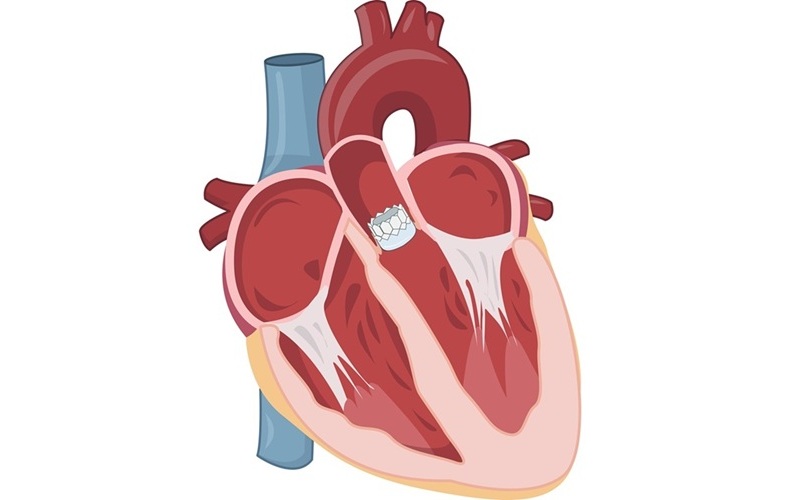
Early TAVR Intervention Reduces Cardiovascular Events in Asymptomatic Aortic Stenosis Patients
Each year, approximately 300,000 Americans are diagnosed with aortic stenosis (AS), a serious condition that results from the narrowing or blockage of the aortic valve in the heart. Two common treatments... Read more
New Procedure Found Safe and Effective for Patients Undergoing Transcatheter Mitral Valve Replacement
In the United States, approximately four million people suffer from mitral valve regurgitation, the most common type of heart valve disease. As an alternative to open-heart surgery, transcatheter mitral... Read morePatient Care
view channel
Portable Biosensor Platform to Reduce Hospital-Acquired Infections
Approximately 4 million patients in the European Union acquire healthcare-associated infections (HAIs) or nosocomial infections each year, with around 37,000 deaths directly resulting from these infections,... Read moreFirst-Of-Its-Kind Portable Germicidal Light Technology Disinfects High-Touch Clinical Surfaces in Seconds
Reducing healthcare-acquired infections (HAIs) remains a pressing issue within global healthcare systems. In the United States alone, 1.7 million patients contract HAIs annually, leading to approximately... Read more
Surgical Capacity Optimization Solution Helps Hospitals Boost OR Utilization
An innovative solution has the capability to transform surgical capacity utilization by targeting the root cause of surgical block time inefficiencies. Fujitsu Limited’s (Tokyo, Japan) Surgical Capacity... Read more
Game-Changing Innovation in Surgical Instrument Sterilization Significantly Improves OR Throughput
A groundbreaking innovation enables hospitals to significantly improve instrument processing time and throughput in operating rooms (ORs) and sterile processing departments. Turbett Surgical, Inc.... Read moreBusiness
view channel
Expanded Collaboration to Transform OR Technology Through AI and Automation
The expansion of an existing collaboration between three leading companies aims to develop artificial intelligence (AI)-driven solutions for smart operating rooms with sophisticated monitoring and automation.... Read more








